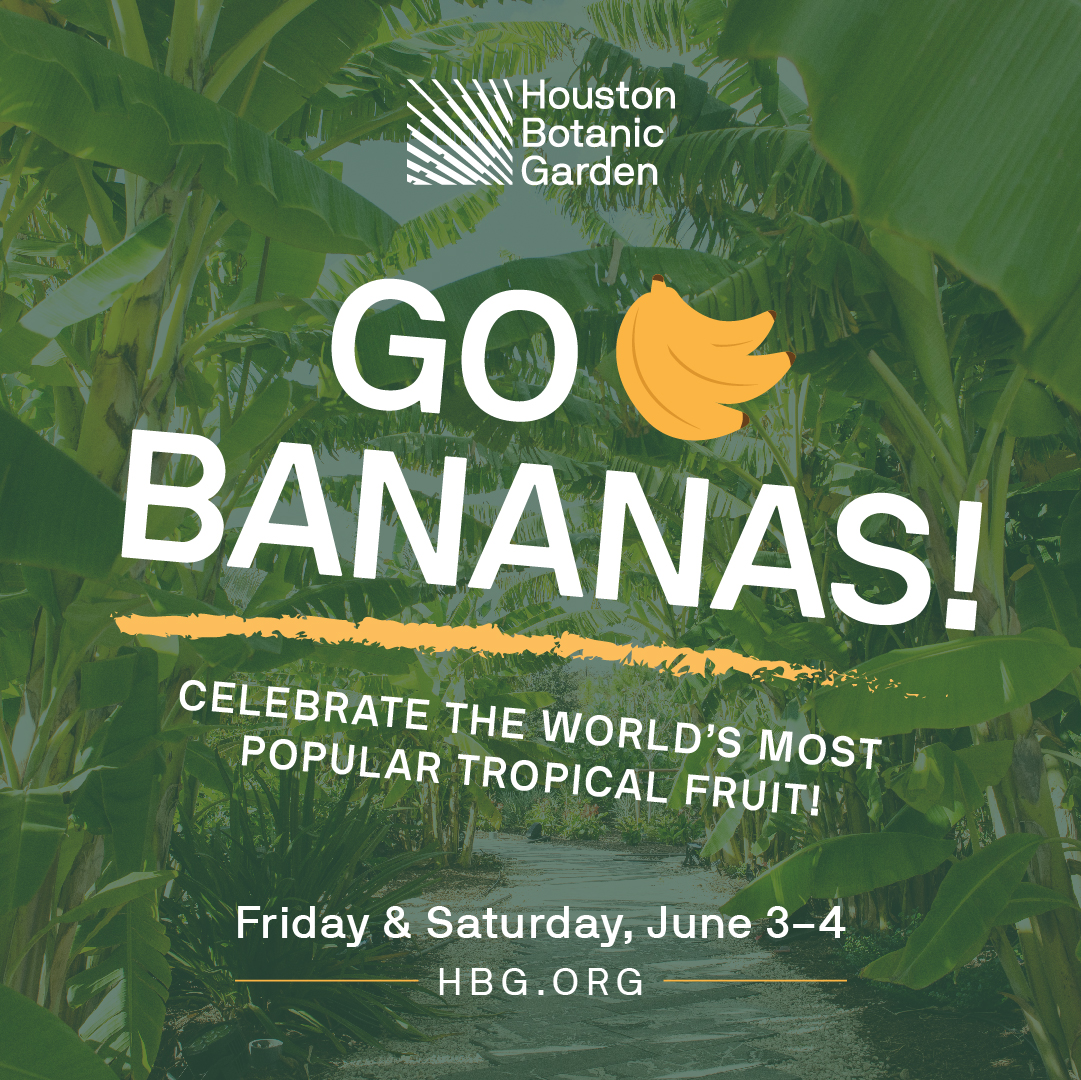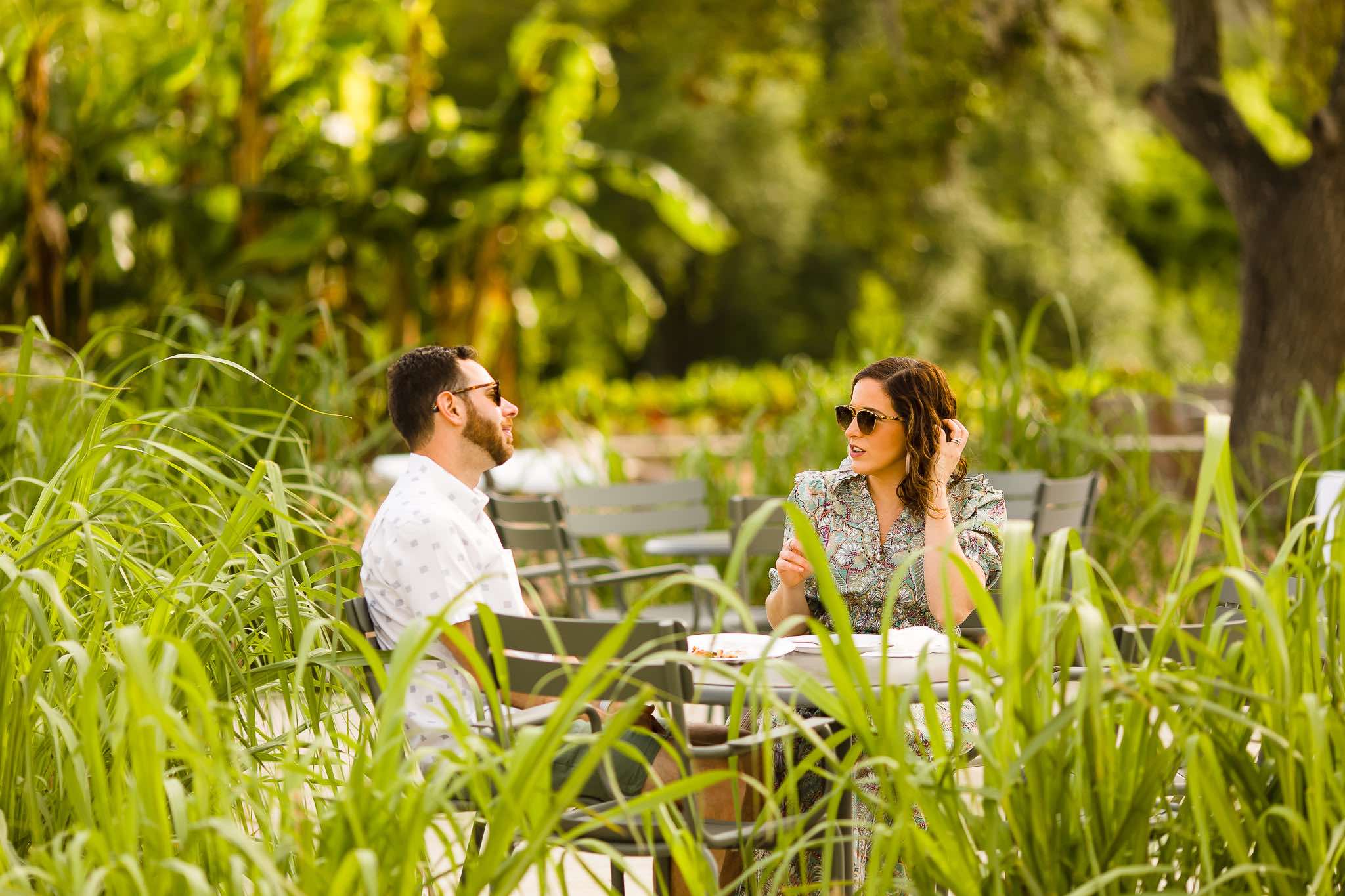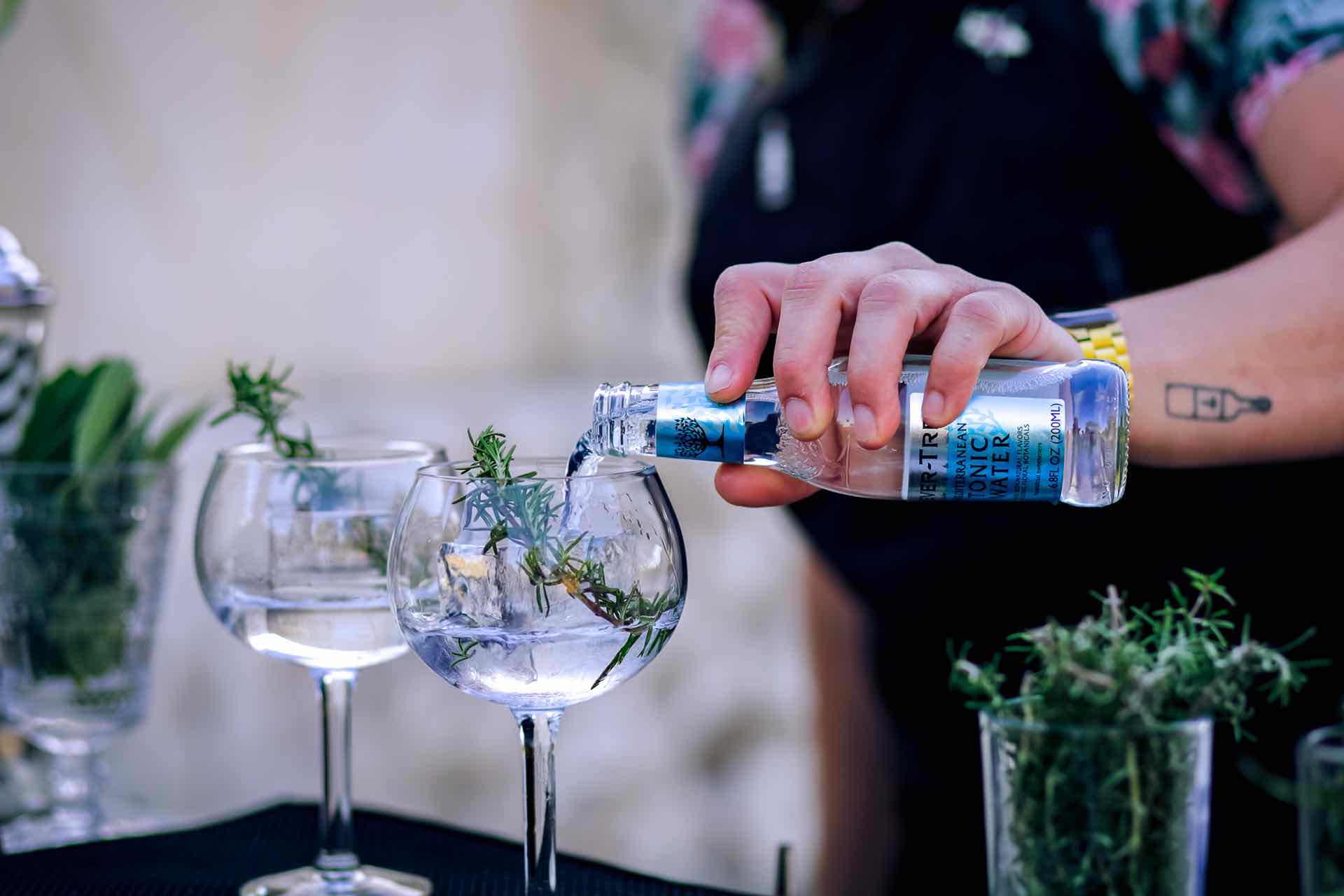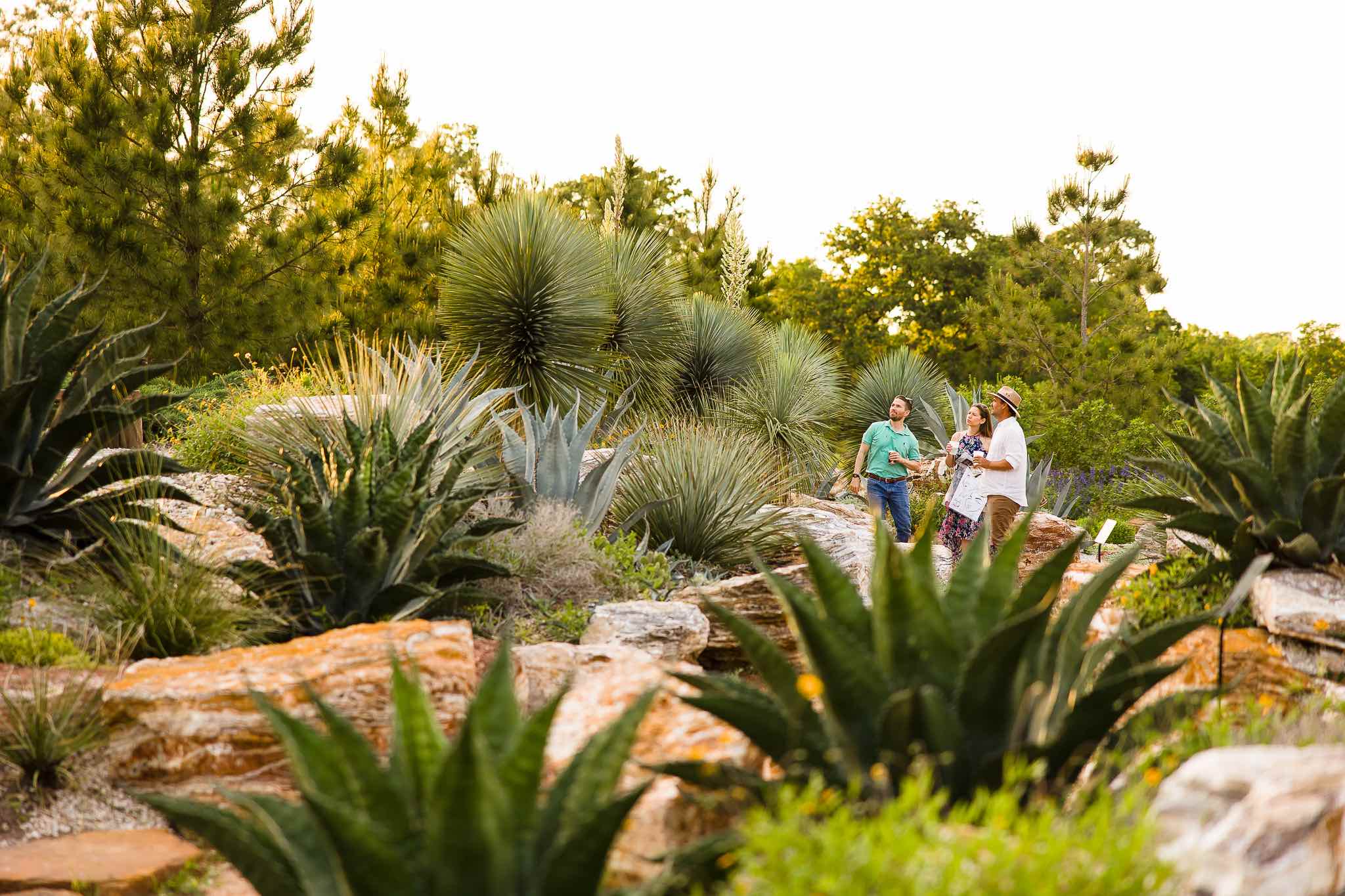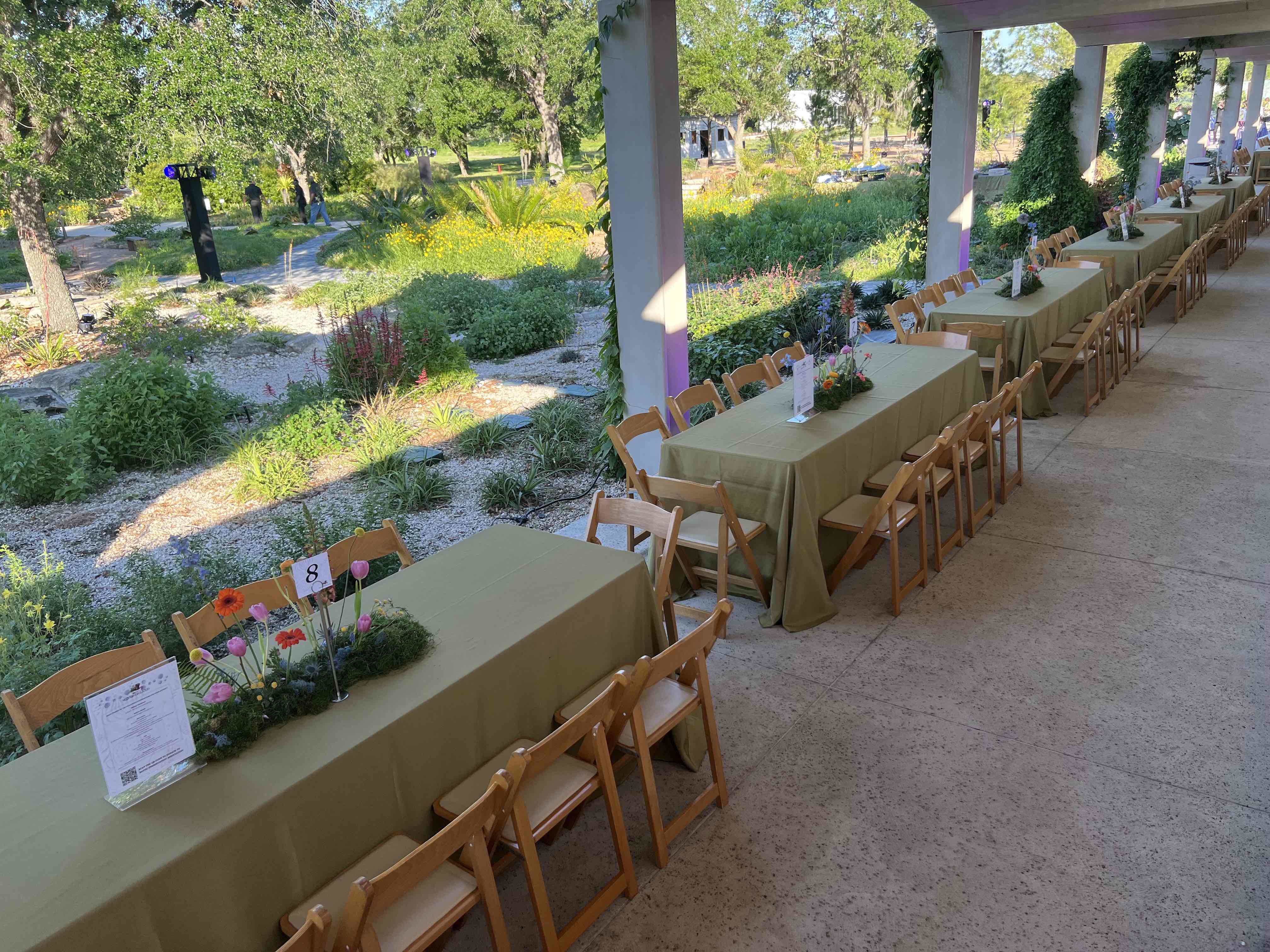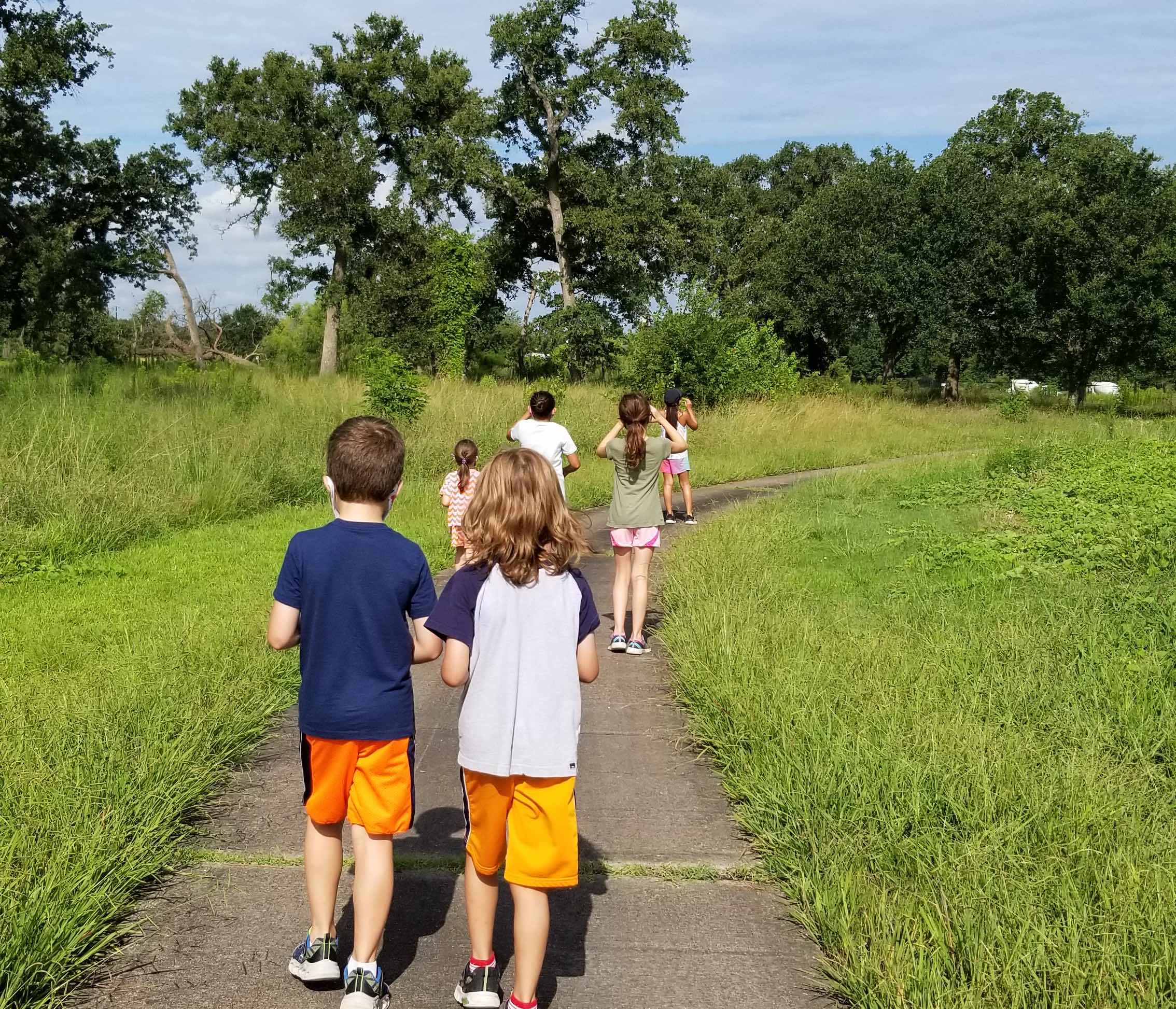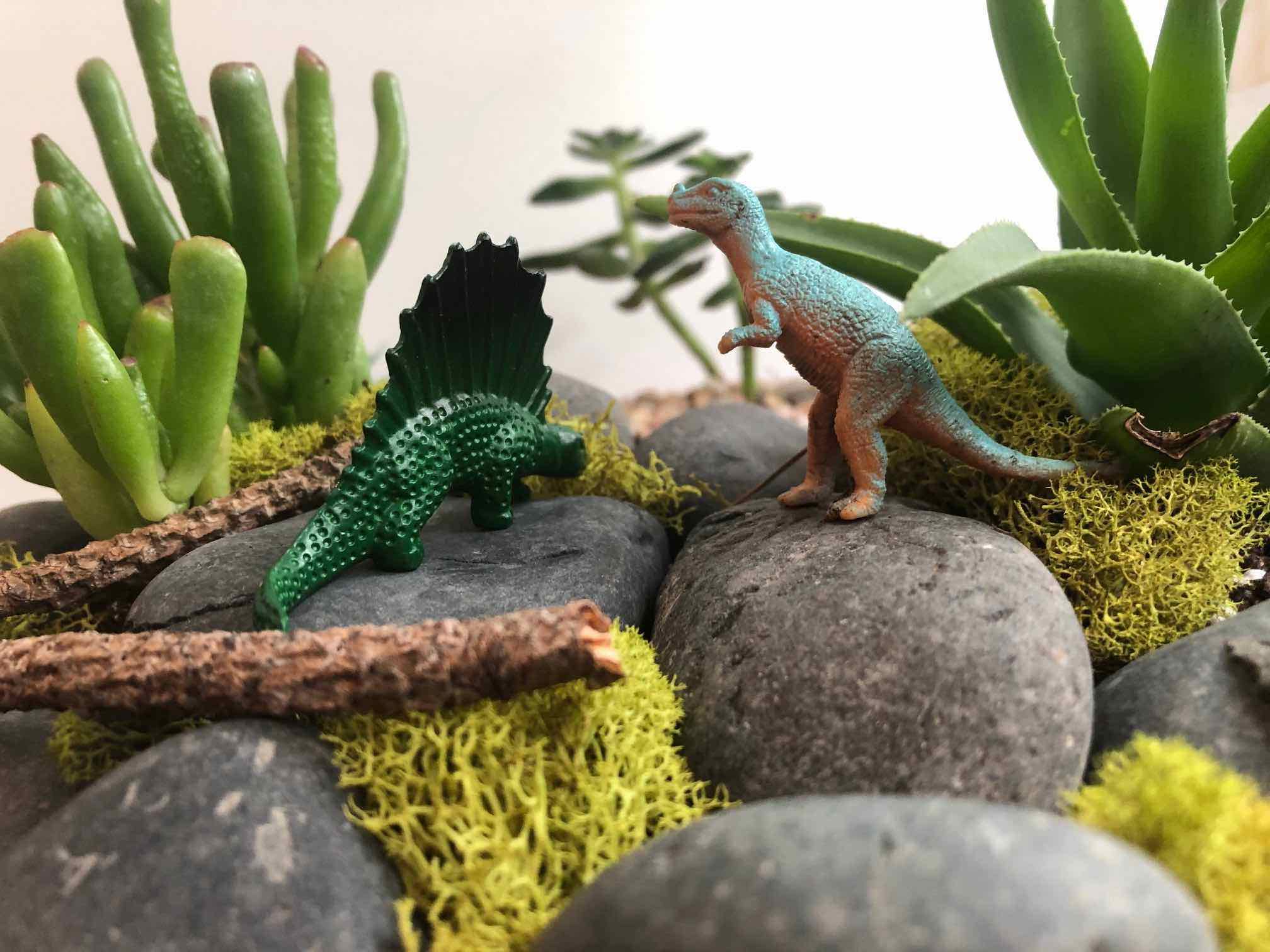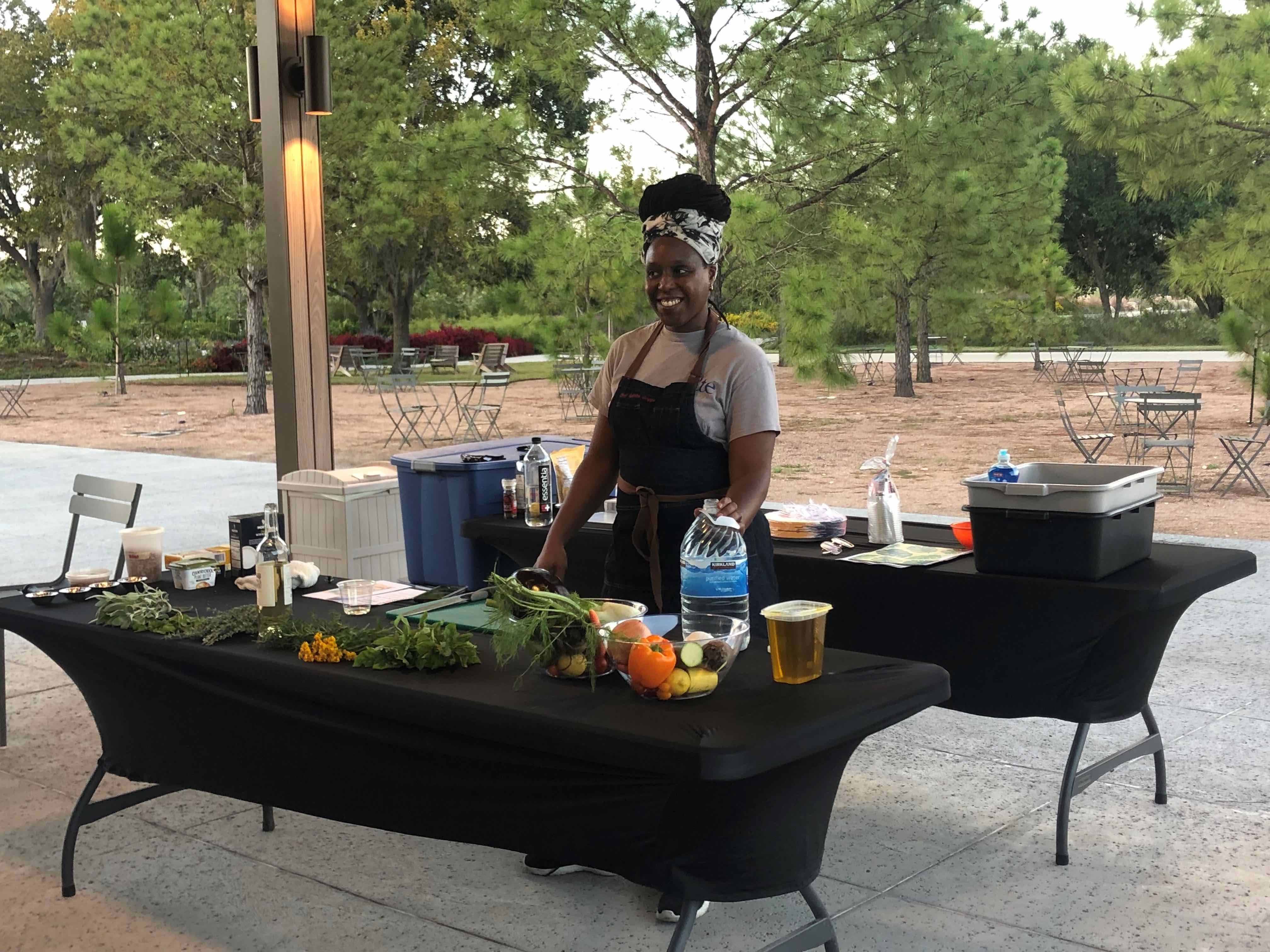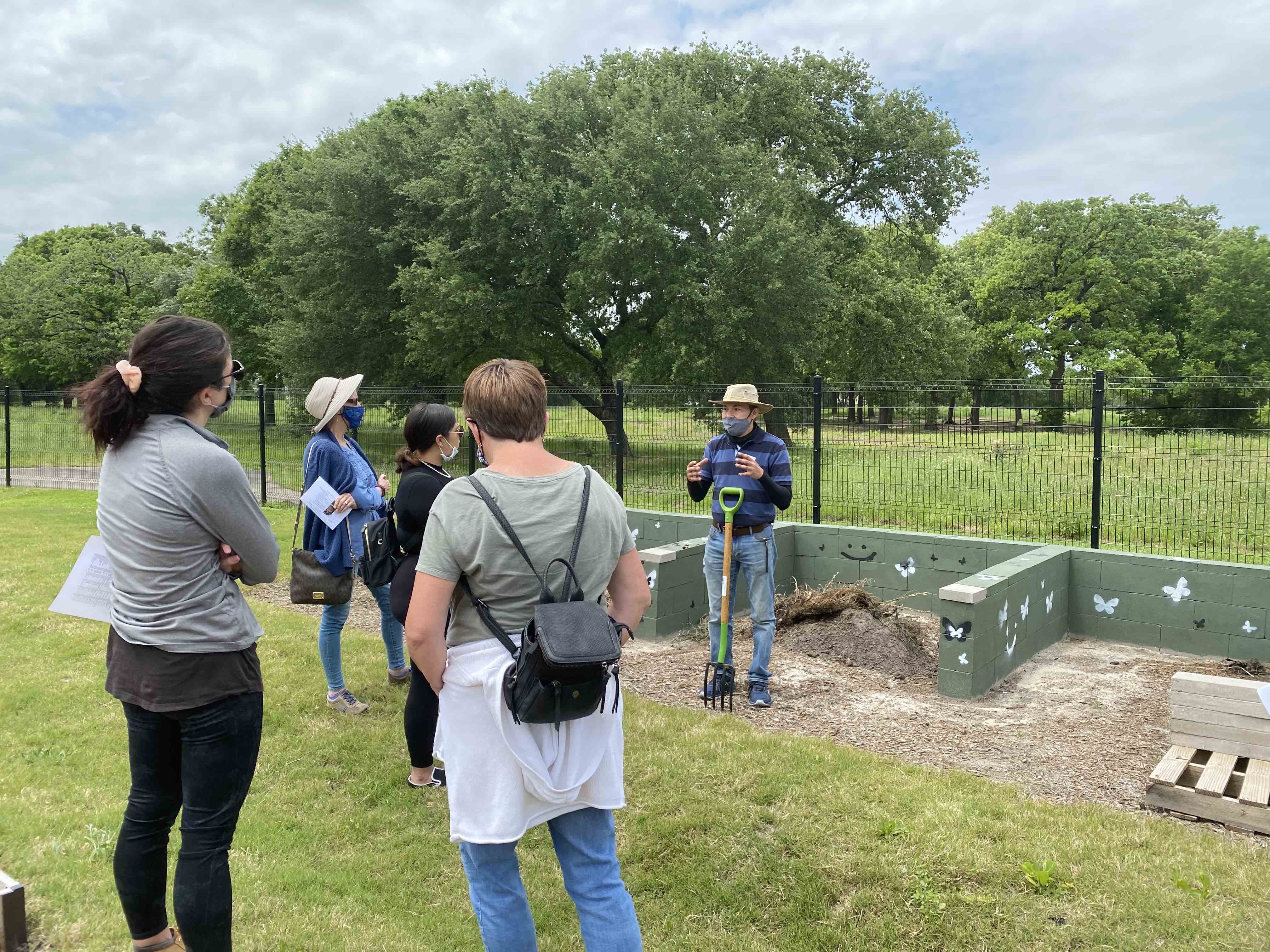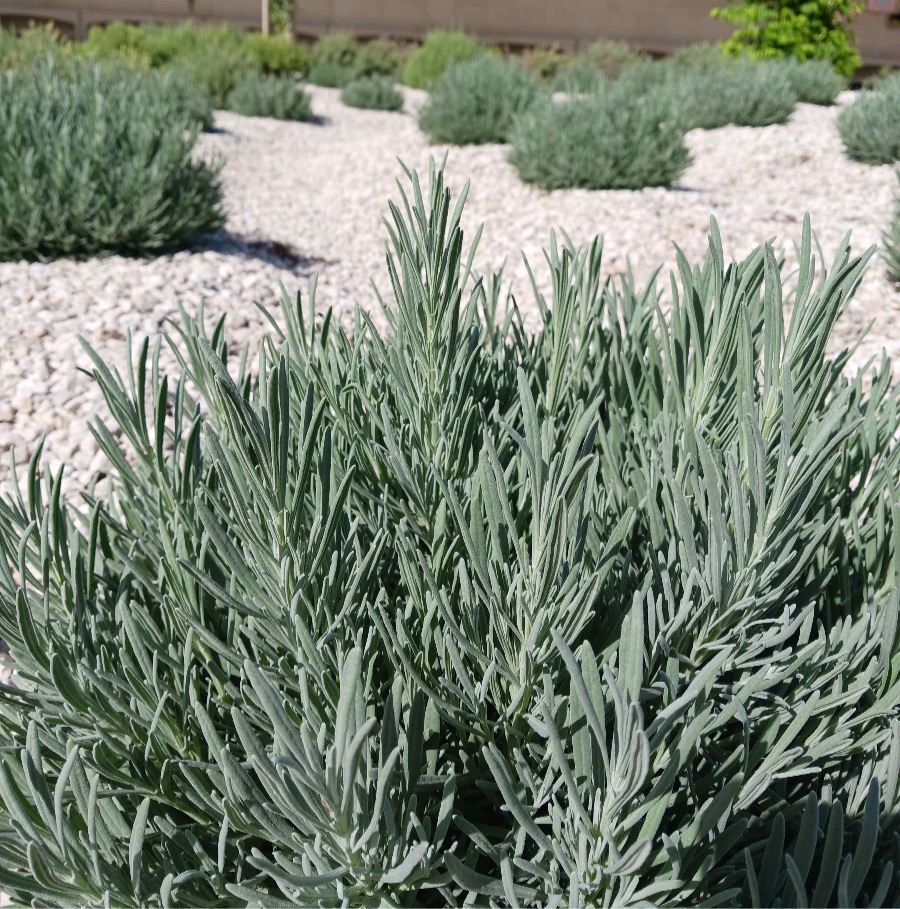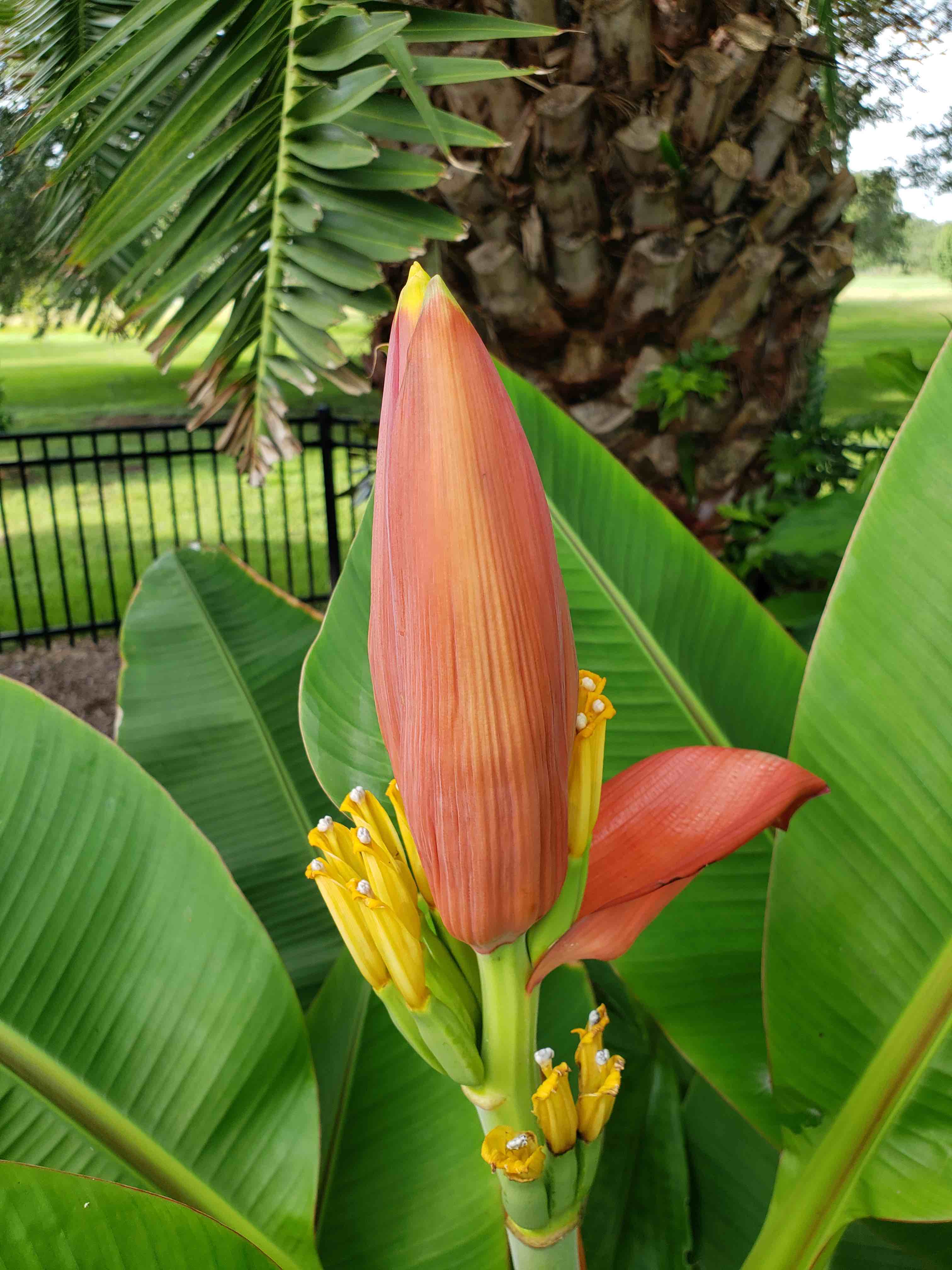
June 2, 2022
Celebrating (Bio)diversity This Summer
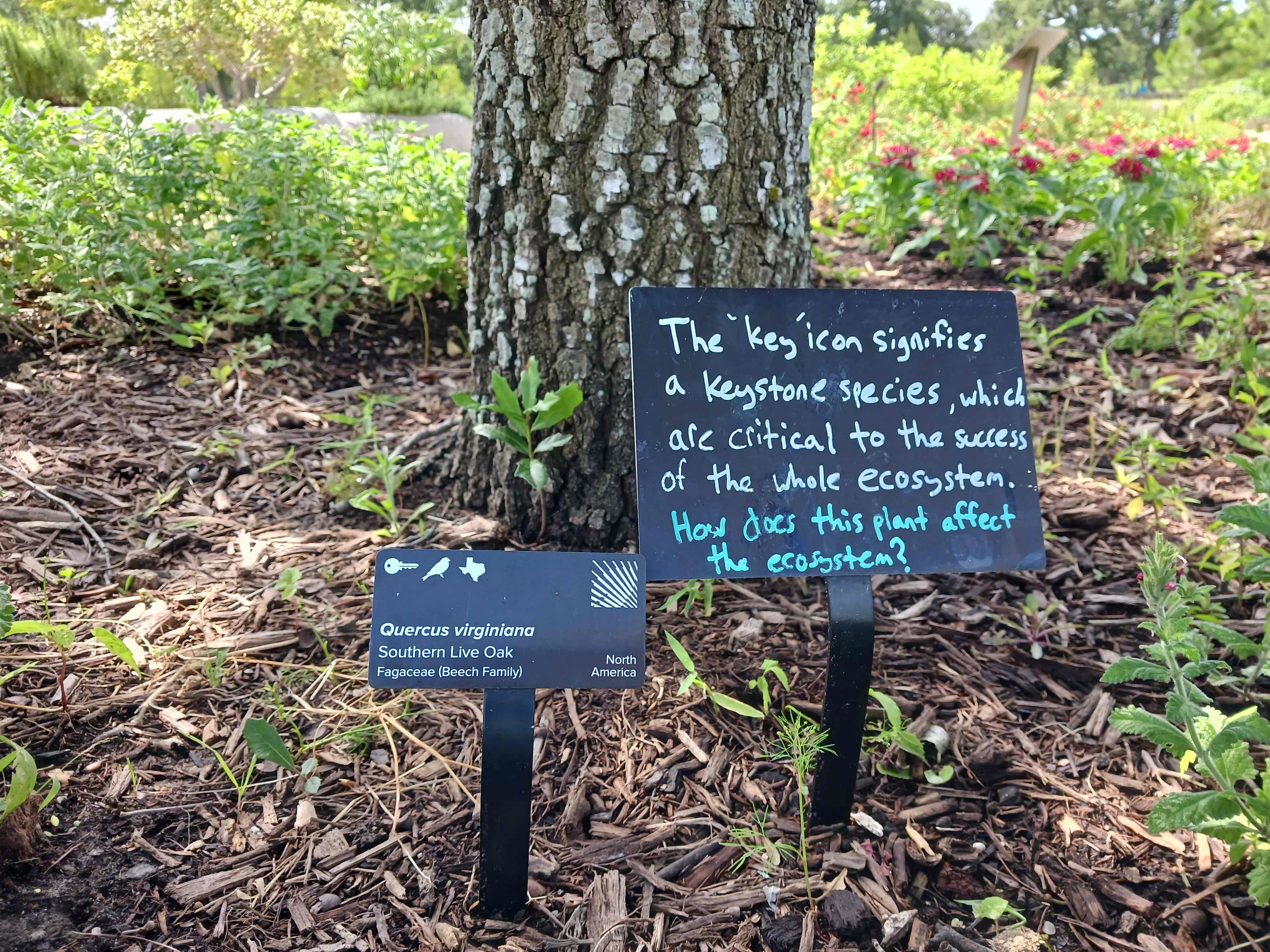
Quercus virginiana -- pictured here in the Susan Garver Family Discovery Garden -- is a keystone species.
Botanic gardens are preoccupied — perhaps obsessed — with biodiversity. The diversity of plants around us gives us moments of awe and makes us happy. But that’s not all. Biodiversity is critical for the resiliency of life on planet Earth. Scientists are ringing alarm bells about the first mass extinction in human history as 1 million species are currently threatened with extinction. I shudder to imagine a world with only a few different grasses, shrubs, and trees.
Keystone plants are critical to the survival of an ecosystem. When a keystone species is lost, the whole food web radically changes or even collapses. Consider the mighty oak: 468 species of butterflies and moths use the oak as a caterpillar host plant in our area. Caterpillars that feed birds, and so forth, as the web expands. Nearly one third of all oak species are currently threatened with extinction.
We are familiar with the monarch’s relationship with milkweed; the silkworm with mulberry; and the panda with bamboo. Nature’s equal opposites balance one another and create harmonious, healthy ecosystems. Healthy ecosystems in turn, prevent floods and reduce other vulnerabilities to natural disasters. The impact of the extinction of one species can have disastrous ripple effects.
And humans at the top of the food chain? We depend on biodiversity for food security and nutrition. When we rely on only a few species for our food, our agricultural system is at risk for pests or pathogens that can destroy entire species. Imagine a diet limited to only a few sources. Not only would it be boring, our bodies would be deficient in many vitamins and minerals found in diversified, balanced diets.
The Houston Botanic Garden celebrates biodiversity of plants from across the globe. Each plant is beautiful. Each species is a crucial member of its ecosystem.
As we celebrate Pride month this June, we celebrate the diversity of humankind and the value and beauty of each human, particularly our LGBTQ+ friends — just like we celebrate the value, beauty, and incredible diversity of the Earth’s plant life.
Life Grows Here.
Claudia Gee Vassar, President & General Counsel
Attention banana lovers—Go Bananas!, our festival celebrating this special plant, is coming up on Saturday, June 4. Attendees will learn about a variety of banana-related topics at this all-day event, which includes cooking demonstrations, an engaging kid's zone, a local farmer's market, and more. Cost is $15 for adults and $10 for children and students, general admission to the Garden is included in the cost of tickets.
Educational Experiences at Go Bananas!
2 p.m. Cultural & Culinary Use of Plantains
Chef Victoria Elizondo teaches attendees about the many uses of plantains and encourages them to experiment in their kitchen at home, including trying her family’s secret mole recipe.
3 p.m. World of Bananas
Mercer Botanic Gardens horticulturists Elise Rodriguez and Jevon Richeson explore the history and complicated relationship between humans and bananas, the diseases that the plant faces, and how to alleviate the environmental impacts of its agricultural production.
4 p.m. Growing Bananas in Texas
Brent Moon, Houston Botanic Garden’s horticulture manager, will discuss the distinctions between edible and ornamental varieties of bananas, including cultivars that grow best along the Texas Gulf Coast and some rare and unusual varieties within the Musa genus.
The official brunch of the Go Bananas! festival, the Garden’s Tropical Fruit Feast begins at 10:00 a.m. and will feature a curated menu of banana and plantain dishes from Monkey’s Tail, including coffee, banana bread, and St. Germain cocktails infused with ginger and banana. Cost is $50 per adult or $45 for children 3-15 and includes festival admission.
There’s nothing like a boozy beverage after a long day of Going Bananas! Mixxed is an after-hours cocktail competition where six volunteer and professional mixologists will be challenged to craft the tastiest cocktail from specific ingredients for a chance to be crowned the Mixxed Cocktail Champion. A $50 fee per adult (ages 21 and older) includes festival admission earlier in the day, along with three drinks during the competition.
Houston-area educators interested in starting their own school garden are invited for a free breakfast, coffee, and stroll through the Garden on Thursday, June 16. Attendees will receive 2 hours of SBEC credit through the Texas Association for Environmental Education.
Stay late at the Garden with extended evening hours every Friday night until Sept. 2. Visitors with general admission tickets are invited to continue exploring the Garden's features on the Island for an extra three hours until 8:00 p.m. Beat the heat with Summer Fridays!
Celebrate your special occasion and give back in the process by hosting at the Houston Botanic Garden. Proceeds from event rentals directly support the Garden’s mission and efforts. To schedule a walk-through of one of the Garden’s venue spaces, please contact rentals@hbg.org or 713-715-9675 ext. 113.
How can I prepare my garden for summer?
We suggest fertilizing with an organic or slow-release fertilizer to ensure your garden gets the nutrients it needs. Mulching with composted leaves, ground hardwood, pine bark, or pine needles will also help cool the root zone, retain moisture, and reduce weed growth.
It's important to note that frequent watering leads to shallow roots and plants more prone to drought stress. Instead, water deeply and infrequently.
What are some plants that can withstand the Texas heat?
The following plants are Texas-tough and perform well during hot, humid summers: Muhlenbergia capillaris (Gulf Coast muhly), Tecoma stans (yellow bells or esperanza), Salvia greggii (autumn sage), and Dyospyros texana (Texas persimmon).
Can biodiversity help make a garden ecosystem more resilient?
Biodiversity is always important in our gardens and ecosystems. Gardens with relatively few species—or worse, a monoculture—are more prone to being wiped out by pests or disease. Diverse ecosystems are better-equipped to handle the stresses of inclement weather and insect and disease pressure. If an ecosystem is attacked by pests or affected by drought, the higher diversity provides a larger chance of any given species having traits that would allow the overall ecosystem to adapt to those pressures. Whereas a monoculture would much more easily be wiped out.
Making Memories at the Garden
During Ecosystem Adventure June 6-10, campers will look at natural phenomena using a scientific lens (literally and figuratively).
At the Flower Power session June 20-24, campers will learn the lifecycle of flowers and their partnerships, from roots to pollinators.
BotaniCamp returns with fun-filled adventure for K-5 students. Each week, campers connect with nature through thoughtful lessons and hands-on activities—planting, growing, and interacting with natural environments—while working with the Garden’s horticulture team and subject matter experts.
BotaniCamp sessions run Monday through Friday from 9 a.m. to 2 p.m.
With Arbor-mania week, June 13-17, campers will learn all about trees and the amazing role they play in the local ecosystem.
For Farms & Fields week June 27-July 1, campers will learn about gardening, farming, and soil health.
Let's Make a Dinosaur Garden
On June 11, education coordinator Erin Mills will lead participants on an exploration of the Garden to identify different habitats where dinosaurs could have lived millions of years ago. Explorers will then create their own mini dinosaur habitats. Kids and parents (or grandparents!) are encouraged to attend together.
Juneteenth Celebration
Join Chef Keisha Griggs on June 16 as she creates a complete meal perfect for Juneteenth celebrations, incorporating fresh produce from local farms, as well as the Houston Botanic Garden’s Culinary Garden. She will also share a wine and beer pairing for the delicious dishes. Space is limited to 20 people.
Composting at Home
Composting is a great way to cut down on greenhouse gas emissions. On June 19, Dany Millikin, the Garden’s director of education and 'garden guru,' will share some of the methods of composting used at the Garden and strategies for keeping your homegrown compost clean and effective.
Explore our Events Calendar for more upcoming opportunities to grow your gardening knowledge.
Charles Roeseler is a recent retiree who volunteers at the Garden during his newfound free time. He talked with us about what he likes about the Garden, volunteering, and the community he has found here.
“You never feel like an outsider, even if you are new. I honestly thought I would just be weeding a bed somewhere on my own but I have found a lot of camaraderie and (I hope!) budding friendships amongst other volunteers at the Garden.”
To get involved, contact us at volunteers@hbg.org or call 713-715-9675 ext. 152.
A Community for All
Meet Kendall Taormina, a founding member of the Garden’s next generation group, the Bloomers. In this interview, the Rice MBA alumna shares how the Garden can be a model for an ideal community, and how crucial it is to learn about the local ecosystem. She also gives her tip on the perfect photo spot in the Garden if you’re looking for a backdrop with a riot of rainbow colors.
You can make a donation to our annual fund at any time by clicking here or texting give2garden to 71777.
Bananas (Musa spp.) are cultivated in warm, humid regions and generally stop growing when temperatures consistently fall below 55 degrees. They are native to tropical Southeast Asia, India, the Malay Archipelago, and Australia. Members of the genus Musa love lots of water but not standing water, which can rot the roots.
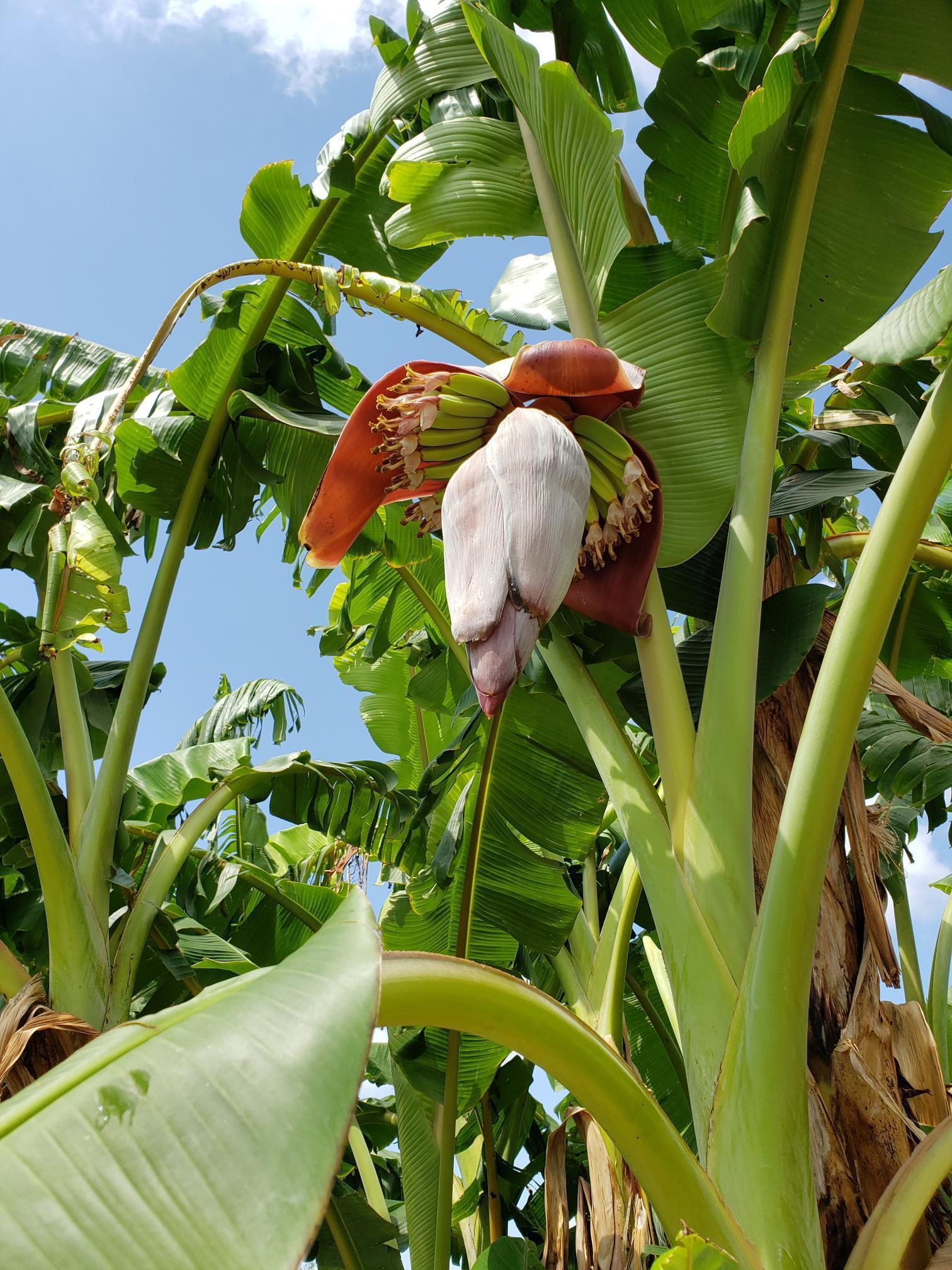
Musa 'Namwah' is an edible banana. Photographed by Plant Records Manager Jena Portanova in the Culinary Garden.
Many people inaccurately call banana plants “trees.” But that sturdy “trunk” is actually called a pseudostem—bananas are members of the herb family! For those who love the fruit and hope to grow their own harvest, it’s possible to grow them successfully in the Gulf Coast region. Check out these tips from Horticulture Manager Brent Moon, on how to care for banana plants and reap the rewards of a delicious bounty.
